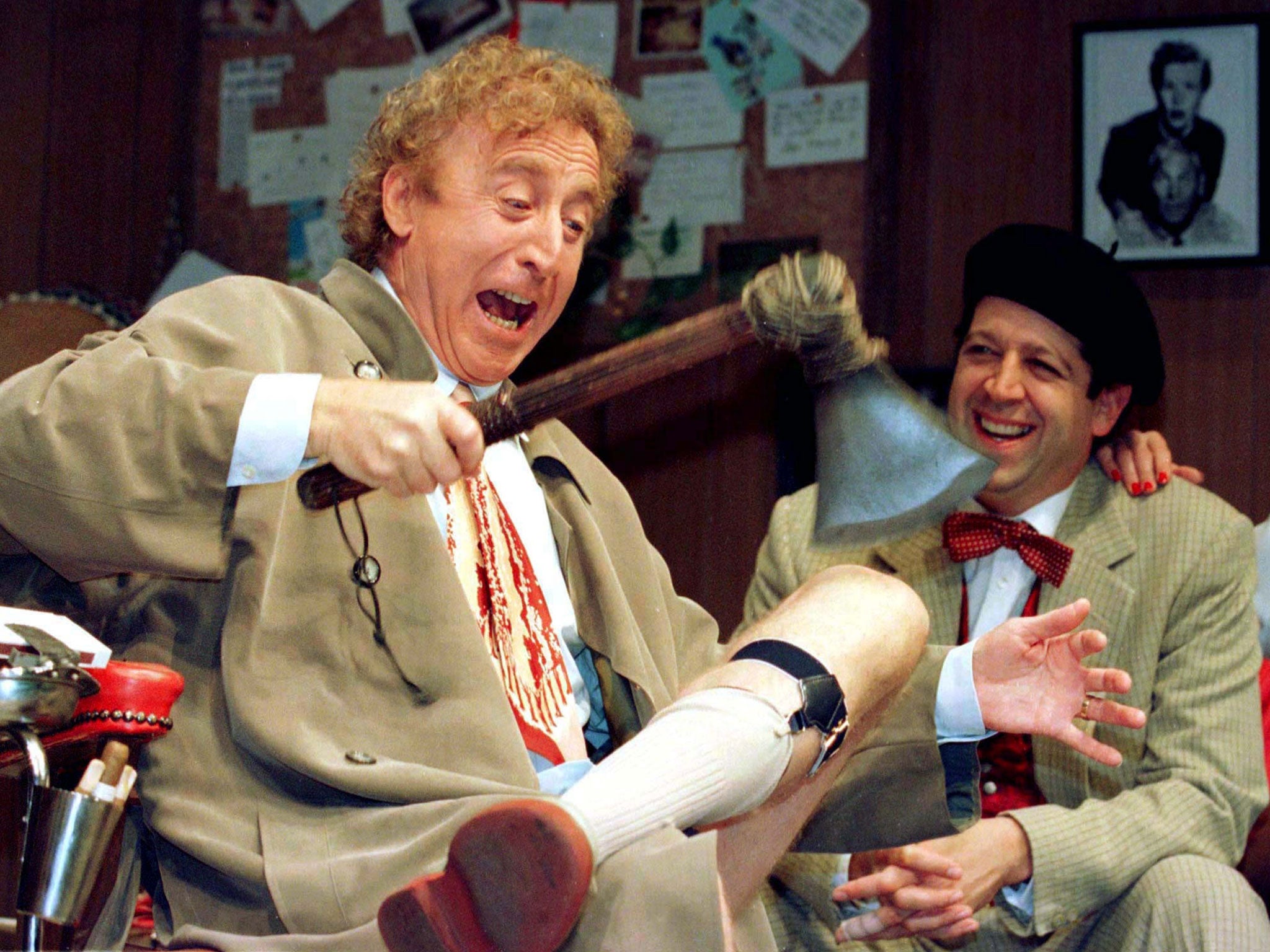Gene Wilder might have spoken openly about his Alzheimer's if dementia wasn't one of the most stigmatised illnesses of our time
I remember my father being brought back home by the police because he’d been found wandering down the central reservation of a dual carriageway. Understandably, his diagnosis came with a lot of fear. But we need to face up to dementia's realities and tackle the stigma surrounding it

I was saddened to hear this week about the death of the late, great Gene Wilder as a result of complications of Alzheimer’s disease.
It transpired that the man who brought so much laughter to so many people thanks to his comic genius had lived with dementia for a number of years – something which I know, through personal experience with my own father, can be frightening.
It was extremely moving to read from Wilder’s family that they, and he, had decided to keep his dementia a secret so that children who knew him as Willy Wonka would not equate the character with an adult disease. “This illness-pirate, unlike in so many cases, never stole his ability to recognise those that were closest to him, nor took command of his central gentle life-affirming core personality,” their statement read. “It took enough, but not that.”
Understandably, Gene’s family wanted him to be remembered for his legacy, for children to smile when they thought of him and not define him by an illness – not least dementia, a condition that children the world over still know relatively little about. And it was Gene’s decision not to release the details of his illness after he was diagnosed, apparently so that children wouldn’t be upset or frightened by the association of Willy Wonka with a frightening adult disease.
There can be no doubt that having dementia – a term which describes a set of symptoms that may include memory loss and difficulties with thinking, problem-solving or language – can have a profound and devastating impact on the person with dementia and the people who surround them.
Before my own Dad developed dementia – and long before I came to work at Alzheimer’s Society – I must confess I didn’t know much about it myself. Back then, it was often seen as the ultimate death sentence and simply wasn’t spoken about.
With my father, that diagnosis was steeped in fear, often a very physical fear about his personal safety.
He used to go wandering off to go to the off-licence. I remember him being brought back home by the police because he’d been found walking down the central reservation of a dual carriageway.

A diagnosis of dementia can be profoundly upsetting for the person with dementia, their families and their friends. I firmly believe that it’s up to every individual to decide who they tell and when, just as Gene and his family decided not to disclose his condition to the world. I fully respect a person’s decision to share their diagnosis with as many, or as few, people as they wish – because it’s such a personal issue.
Nowadays, the stigma surrouding the disease is slowly being broken down. I’ve dedicated myself to working with children and young people to try and create a “dementia-friendly” generation – perhaps in the future, that means that icons won’t feel as worried about revealing dementia to the adoring younger generations of fans.
We have a long way to go until society displays full acceptance, inclusion and support for people living with dementia and their carers. Research shows that dementia is still the most feared health condition of our time, with people continuing to put off seeking a dementia diagnosis or talking to others about the way in which living with dementia affects their lives – and the lives of those around them.
While the way in which an individual chooses to live with a dementia diagnosis is their choice, and Gene and his family were well within their rights to keep his diagnosis private, I want people to know that it’s OK to be open. Counter-intuitive as this may sound, not everything about a dementia diagnosis has to be doom and gloom.
The staff on our National Dementia Helpline can provide information, support, guidance and signposting to other appropriate organisations and can be contacted on 0300 222 1122. Read more about how Alzheimer’s Society’s Dementia Friends initiative is changing the way people think, act and talk about dementia
Join our commenting forum
Join thought-provoking conversations, follow other Independent readers and see their replies
Comments
Bookmark popover
Removed from bookmarks